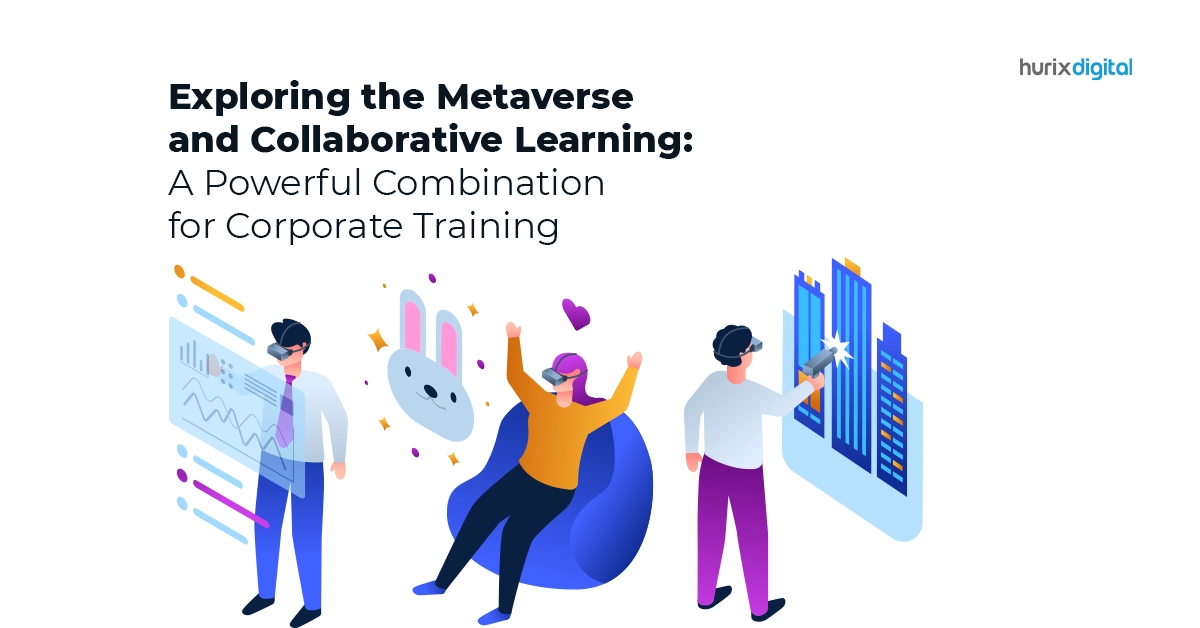Author: Terri Van Sickle
Rather than being passive receivers of information, engaged learners become analytical thinkers, collaborative creators, clear communicators, and agile problem solvers – all of which are sought-after workplace skills. To keep students engaged and to foster collaboration, course designers can build active learning and interaction into online courses to promote transformative learning experiences. This blog will help you understand the difference between engaged learning, collaborative learning and transformative learning.
Table of Contents:
What is Engaged Learning?
Info-Sci Dictionary offers a comprehensive definition of engaged learning for adults (emphasis added):
- An active process in which knowledge and understanding are acquired through participation, inquiry, involvement and direct experience.
- Focuses on relationships between students’ involvement and empirically-based university conditions that positively impact and influence students’ commitment to participate.
- Sustained interactions that involve exchange of ideas and information among learners in which they progressively become intrinsically motivated to deepen the interactions accompanied by in-depth thoughts, critical analysis, and purposeful discourse essential to construct and validate meaning.
- Instructional methods that include active and collaborative activities designed to connect concrete applications to professional and civic life.
- Learning environments that provide learners with opportunities to be active, creative and critical as well as being creators of their own perspective and identity, thus promoting their learning experiences.
- In this concept, students are encouraged to be active participants in their learning (instead of passive receivers of information). Students learn by integrating all of the mind/brain principles as they work in complex ways to develop their intellects and skills. Students work individually and in cooperative groups to develop critical thinking skills as they approach real world problems and/or simulations.
What is Collaborative Learning?
In collaborative learning, everyone participates actively and equitably because the hierarchy between facilitators and learners is flattened. Both the instructor and peers are seen as resources for the learner. Geoffrey Caine writes in the Handbook of Research on Student-Centered Strategies in Online Adult Learning Environments, “Learning usually does not occur effectively in isolation. Through observation, discussion, and feedback, the social aspect of learning is an integral piece of the learning puzzle.” Drawing on the work of multiple psychologists and philosophers over a period of decades, the concept of collaborative learning integrates multiple learning theories into a framework that views knowledge as something created by a community of learners who each bring their own experiences and perspectives to the table rather than knowledge being transferred by an individual (teacher) to a group of recipients.
Collaborative learning is inquiry-based. A group of learners seek and construct meaning around a common question or set of questions that drive their learning experience. In Computer-Supported Collaborative Learning and Assessment: A Strategy for Developing Online Learning Communities in Continuing Education, Joyce W. Gikandi says the findings of her study suggest that social interactivity is pivotal to facilitating meaningful learning in formal online education. As a result, she encourages the use of learning communities as part of instructional design. She defines learning communities as “formal groups with [a] common educational purpose where members are constantly learning new skills and working to discover and propagate knowledge.” Connecting with others and sharing information helps learners respond with agility in rapidly changing environments.
What is Transformative Learning?
Transformative learning is a concept introduced by Jack Mezirow, an adult education researcher and theorist. It is a constructivist approach to learning theory in which learning is defined as meaning making that occurs by applying new information to previously-held beliefs in a manner which challenges the adult learner’s well-established perspectives. After a period of analysis, application, and reflection, learners may incorporate the old and the new, or they may replace the old with the new. In other words, learners experience a shift in their frame of reference or, on a larger scale, a paradigm shift, which helps them replace self-limiting beliefs and behaviors. As higher education seeks to prepare adult learners to become agile problem solvers, this process of disrupting learners’ long-held beliefs is beneficial because, as Mezirow states in Transformative Learning: Theory to Practice, “Transformative learning develops autonomous thinking.”
According to Mezirow, transformative learning occurs through ten phases:
- A disorienting dilemma – This can be a sudden “a-ha” moment or a gradual shift in which new information affects the learner’s frame of reference.
- A self-examination – Learners self-test their beliefs when confronted with a disorienting dilemma.
- A critical assessment – Learners assess past assumptions; they evaluate and either validate or refute past beliefs.
- Recognition – Learners realize others also struggle with disorienting dilemmas that lead to similar self-examination and critical assessment. A sense of a learning community grows.
- Exploration – This is the phase in which learners discover new options for roles, relationships, and actions.
- Planning a course of action – Learners go through a phase of informed personal decision making for a path forward.
- Acquiring knowledge – In this phase, learners are seeking out additional knowledge that supplements their new perspectives and skills.
- Trying out roles – Having discovered new options for roles, planned a course of action, and acquired necessary knowledge, learners place themselves into new roles.
- Building competence and confidence – Learners gain experience in new roles, which increases their comfort level.
- Reintegrating – Learners gain a new sense of self and sense of place as they fully incorporate their new knowledge, perspectives, skills and experiences into their world.
In recent years, other educators have taken Mezirow’s ten phases of transformational learning and grouped them into fewer categories. In 2014, Norma Nerstrom developed The Nerstrom Transformative Learning Model, which simplified the ten steps of transformational learning into four segments with a sequential order: (a) having experiences; (b) making assumptions; (c) challenging perspectives; and (d) experiencing transformative learning. Further simplified, the ten phases can be grouped into three stages:
- A catalyst prompts the realization that transformation is needed.
- Reflection and examination lead to a proposed solution.
- Action is taken toward the proposed solution.
Additionally, Mezirow states these ten phases are made up of actions, roles, and contexts.
In conclusion
If the goal of your program or course is to prepare students for long-term, active, and successful careers, then you not only want to help them build their skill set; you also want to create transformative learning experiences. To this end, you must build in activities that not only help students build skills but also help them engage, collaborate, and transform.
Related Article – 5 Steps to Create a Collaborative Learning Environment at the Workplace
Need to know more about our Products & Services ? Drop us a Note.








